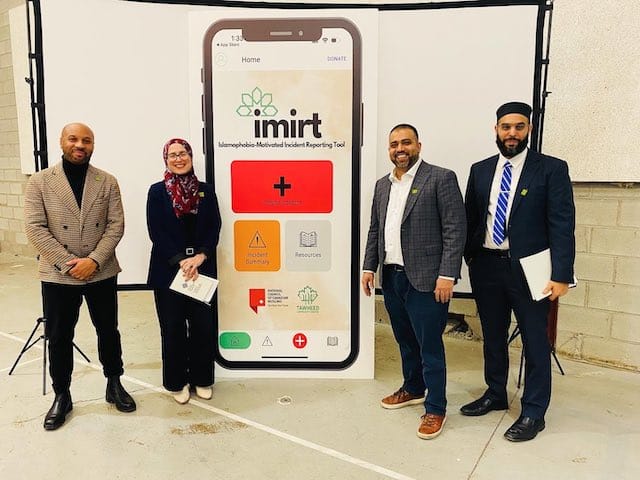New mobile app aims to combat rising Islamophobia in Canada

A new mobile app named IMIRT, short for Islamophobia-Motivated Incident Reporting Tool, has been launched to enhance community safety and inclusivity. This initiative follows a worrisome surge in violent Islamophobic events nationwide.
Imam Ibrahim Hindy of the Dar Al-Tawheed Islamic Centre, in collaboration with partners and supported by a grant from the Canadian Race Relations Foundation, along with the National Council of Canadian Muslims, spearheaded the development of this app to empower the Muslim community in reporting incidents.
Hindy emphasizes the prevalent issue of underreporting and highlights the app's convenience for individuals unsure about reporting incidents. He stresses that the app provides a simple way to report incidents using a smartphone, fostering a sense of community awareness.
“We created this app with our partners, and thanks to a grant from the Canadian Race Relations Foundation and with our partners at the National Council of Canadian Muslims, where we can help the Muslim community to report these incidents,” said Imam Ibrahim Hindy. “If they’re not sure if they should be reported, they have the ease of just being able to do it on their phone and it’s reported within the community.”
Amira Elghawaby, Canada's representative addressing Islamophobia, applauds the initiative, citing that victims, particularly within the Muslim communities, may not always feel comfortable approaching the police. She underscores the significance of a third-party application, making it easier for individuals to come forward and share their experiences.
Mohammed Hashim, the executive director of the Canadian Race Relations Foundation, underscores that the app goes beyond mere statistics, aiming to cultivate safety within the community.
“This app will hopefully give us a picture – a better picture – of where incidents are happening so that we can find trends and be able to highlight that when conversations with law enforcement or with the community themselves.”
